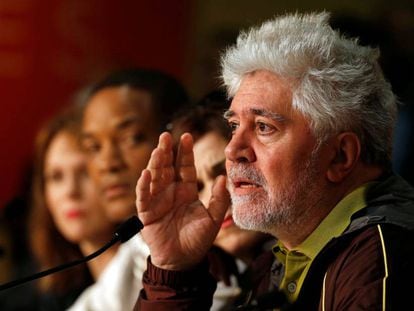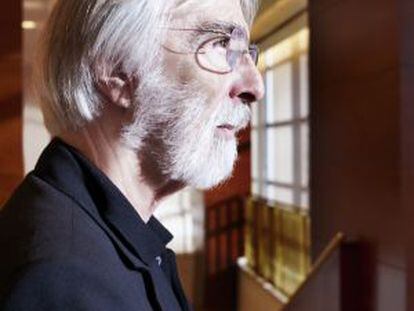For Kathryn Bigelow, when it comes to cinema, “entertaining is not enough”
The first female Best Director Oscar winner depicts the race riots in Detroit in her new movie
For Kathryn Bigelow mories are the weapon with which she creates empathy and generates conversation, her goal in her latest film, Detroit, which opens today in Spain. The film focuses on the murder of three young black men during the race riots that took place in Detroit 50 years ago. As she explains to El Pais: “as a filmmaker, especially in these times, entertaining is not enough.”

In an interview in the Four Seasons Hotel in the heart of Beverly Hills, the 65-year-old reflects on her first movies, such as The Protectors, Point Break (1991), Strange Days (1995) or K-19 (2002), all very different to her more recent work, which has an almost journalistic narrative, such as The Hurt Locker (2008), Zero Dark Thirty (2012) and now Detroit.
I was the first to wonder if I was the best director to bring this story to the screen. And in all honesty, the answer is no. But it's a story that needs to be told and I have the means,” she admits about Detroit.
This story that happened half a century ago was never so topical Kathryn Bigelow
The filmmaker passionate about her workd. And from that first moment when she learned what happened 50 years ago at the Algiers Motel in Detroit on July 25, 1967, when LA police killed three young black men after savagely interrogating them, Bigelow launched into action. She did not care that she was a white woman. As she says, she ignores stereotypes. “In addition, we have just been through the Ferguson, Missouri protests. This story that happened half a century ago was never so topical and more in need of dialogue,” she says.
She talks about incidents of police brutality in recent history that gave rise to the #BlackLivesMatter movement, noting that racial tensions have not improved in the Trump era. “That's why I need to tell this story, because I want us to talk about this tragic aspect of our culture. You can call it systematic racism or institutional racism. But it’s necessary to create empathy. Only then will we be aware of what’s happening and that’s the key to change,” says Bigelow.
Raised in a middle-class family in Northern California and educated at Columbia University, for Bigelow words are as important as images. That is why she speaks of rebellion instead of riots. And she does not hesitate to portray good and bad for what they are. Actor Will Poulter ended up crying because of the intensity required by his character after one of the police officers was charged (and later released in another controversial trial) for the murders. “We need to end the endemic problem of racial prejudice in our police and education system and in our society,” she insists.
Bigelow’s use of hand-held camera brings the story home powerfully. “It was weeks of extremely difficult shooting that worked thanks to camaraderie among the team,” she says. “I preferred to improvise instead of doing a rehearsal read, because it’s a much more physical piece,” says Bigelow, summing up the €25 million production.
I guess my way of shooting will be different because I'm a woman. And so is my career
Kathryn Bigelow
Bigelow refuses to be categorize, and is the first woman to win the Oscar for best director, but is also one of the few people who have not seen Wonder Woman, regarded by some as a feminist movie.
She praises the work of other female directors like Ava DuVernay, Kimberly Pierce and Patty Jenkins. They are good, but they aren’t good just because they are women. “Sure, sexism exists,” she accepts. Last year, only 7% of the 250 highest-grossing films were directed by a woman, according to the Center for Women's Studies in Film and Television in San Diego (USA). “I don’t think of genre when I direct, at least not consciously. I guess my way of shooting will be different because I'm a woman. And so is my career. But I do not want to dignify it by talking about it. I prefer to ignore prejudices and keep moving forward,” she says. As for whether she would make a James Bond movie, as Amy Pascal once suggested, her silence and icy gaze says it all.
English version by Debora Almeida.












































